Brian Clegg's Blog, page 68
August 25, 2015
Is this the best of SF?
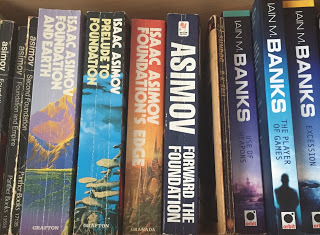 SF greats, ancient and modernI was interested to note a debacle started by a US list of top 100 science fiction and fantasy books. We'll come back to this furore over the suggestion that many of these books were 'shockingly offensive' in a moment, but first a couple of comments about the list itself.
SF greats, ancient and modernI was interested to note a debacle started by a US list of top 100 science fiction and fantasy books. We'll come back to this furore over the suggestion that many of these books were 'shockingly offensive' in a moment, but first a couple of comments about the list itself.To me it seems a mistake to conflate fantasy and science fiction - where most of their SF choices seemed sensible, I wouldn't have included over 50 per cent of the fantasy, which makes me suspect that there should be two separate lists.
If we just concentrate on the SF books, there were inevitably some ridiculous omissions. No John Wyndham, for instance (probably reflecting this being a US list). No Alfred Bester, James, Blish, Fred Pohl, Cyril Kornbluth or (if you want to be more obscure) no E. F. Russell. However it wasn't a bad list overall - no one will ever agree with everything in such a collection.
So what about the moaning article in the New Statesman (pointed out to me by Niki Gamm), which berates this list? One complaint in the article is that most of the SF books are pre-1990s. I think this, to be honest, is entirely reasonable. I struggle to name more modern authors other than Banks and Stephenson who are truly great. I do wonder if it's because a lot of the best SF is about surprising the reader with really original ideas, most of which had been played out by the 1980s.
The other complaint, the one that makes the books in the opinion of the article's author 'shockingly offensive' is that a lot of them appear sexist. I'm sorry, but to complain about this is revisionist nonsense. You can't apply the standards of the day to the past. You might as well take offence at the sexism, racism and anti-semitism in Dickens and Shakespeare. I'm afraid it shows little imagination in the reader if they can't read a book in the context of the time in which it was written.
You might as well moan that the science and technology in old science fiction is pretty well always wrong. Of course it is. And it certainly can be amusing. For instance, Blish notes that it's impossible for electronics to work near Jupiter because the gravitational pull is so strong it would crush the valves (vacuum tubes). However it would be silly to downgrade the status of a story just because it contains such an issue. It's certainly true that there are some pre-Enlightnment II books that I find it difficult to read now because science, sexism or racism issues are so badly handled - but that doesn't apply to many in that top 100 list on the SF side (I can't comment on the fantasy).
I think it's great that we don't have the same problems with sexism, racism etc. in modern writing as used to be the case. But to arbitrarily dismiss something written before attitudes changed simply because it fits with the values of the present seems a patently naive view.
Published on August 25, 2015 02:56
August 24, 2015
Can you apply science to make writing better?
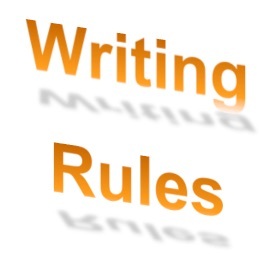 Thanks to Dr Phil Langton of Bristol University for bringing to my attention this interesting piece in Times Higher Education by Yellowlees Douglas on the way that 'understanding the reading brain can help academics and students improve [their writing skills].'
Thanks to Dr Phil Langton of Bristol University for bringing to my attention this interesting piece in Times Higher Education by Yellowlees Douglas on the way that 'understanding the reading brain can help academics and students improve [their writing skills].'Douglas, an associate professor of management communication (no, really, they exist) at the University of Florida argues that we have a lot of data on the reading brain - how we take in information from the written word - and that we can make use of that to provide a series of rules for 'science-based writing' which could be taught in secondary schools to improve the quality of writing.
I don't doubt that we could do more to teach writing skills, but to my mind this is a craft, and benefits as much from practice and feedback as it does from a framework of rules, which the best writers break with ease anyway. However, there's something more dangerous here, which is the assumption that academic studies give us a picture of the real world.
Douglas points out that 'Readers best recall the last quarter of lists, sentences, paragraphs and documents', and I am sure that is true when it comes to students doing tests in some psych lab. However, in the real world I would suggest few people read in the same way they would when undergoing a lab-based test. I, for one, rarely read every word in a document unless it's either a contract or one of my books I'm proof reading. (If I'm honest, I don't think I read every word in Douglas's article.)
It's not for nothing that journalists put such a huge emphasis on the first paragraph, rather than the last as Douglas seems to. Because it's often the case when reading an article in a newspaper we don't get past the first paragraph - so it's essential in good writing in that kind of context to get a strong hook in the first paragraph, and a clear indication of what is to come. But the approach would be totally different for a literary novel. We read different types of material in totally different ways - but the most common thing, whatever the material, is that we tend to skip read. Many of us don't read word for word.
When, for instance, I get sent a press release, as I often do, I will usually read the title, some or all of the first paragraph and scan the rest. The whole thing takes about 20 seconds. That's it, unless it has really grabbed me. Delete already pressed. To be honest, even when I read a novel I tend to skim-read if it gets too descriptive and arty-farty.
So to suggest that you can build good writing on a rule like 'make sure your most important points are in the last quarter' (not explicit in the article, but implied) seems to be a product of a sterile university idea of what reading is like, rather than the real thing.
I'm not an arty type. I don't claim writing is purely an artform that has to come from the soul and can't benefit from technique and good writing skills. Like any craft, technique and skill are immensely important. But I'm highly sceptical that 'science' in the sense intended here can do a huge amount to improve the quality of the written word.
Published on August 24, 2015 03:08
August 15, 2015
Would you trust TrustPilot?
 The other day, for complicated reasons, we got locked out of our house. Knowing it would be a bit of a rip-off, but needing help, we phoned a company with the website mylocksmithinswindon.co.uk on a Swindon number. They answered quickly and I agreed to go with a pretty hefty hourly rate, but no call-out charge. As it turned out, this 'local' firm appeared to be based in Birmingham, but they promised me the locksmith would arrive within the hour.
The other day, for complicated reasons, we got locked out of our house. Knowing it would be a bit of a rip-off, but needing help, we phoned a company with the website mylocksmithinswindon.co.uk on a Swindon number. They answered quickly and I agreed to go with a pretty hefty hourly rate, but no call-out charge. As it turned out, this 'local' firm appeared to be based in Birmingham, but they promised me the locksmith would arrive within the hour.It was a nice sunny day and we didn't mind sitting out in the garden for the 2 hours it actually took. The person who came did a great job and got us inside in under 10 minutes. So a mixed effort, especially when the bill came and it turned out that the price quoted was without VAT, which I thought was illegal, or at least highly dubious, for a consumer quote.
Shortly after I got an email asking to review them on something called trustpilot.co.uk, which I thought was worthwhile. I gave them 3 stars out of five, pointing out the delay and the unexpected VAT, but balancing it with the good service.
A couple of weeks later, I got an email from trustpilot telling me that they needed me to scan my invoice to prove I was a customer before they would show my review. I couldn't be bothered, didn't know where the invoice was and anyway didn't want to reveal to TrustPilot some of the information on what should be a confidential document. I told them they weren't a proper review site if they put hurdles in the way of negative reviews like this. What's interesting is if you look at the review page for the company in question (which turns out to really be called rightio.co.uk) almost all the reviews are positive, but occasionally (before they delete them) you will see ones like mine which don't show the review but look like this:

So what it looks like is if you go to TrustPilot you will see overwhelmingly positive reviews, because as soon as someone posts a negative review the company can query it and TrustPilot puts ridiculous obstacles in the way of allowing a negative review through. Would you trust TrustPilot?
Published on August 15, 2015 03:27
August 13, 2015
Mystery madness
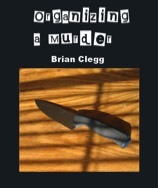 For years I've struggled with finding a robust mechanism to make it possible to download ebooks from my website. Finally I've got something working*, and to celebrate this (and help parents get through the school holidays), I've reduced my ebook Organizing a Murder from £9.99 to £2.99 until the end of August.
For years I've struggled with finding a robust mechanism to make it possible to download ebooks from my website. Finally I've got something working*, and to celebrate this (and help parents get through the school holidays), I've reduced my ebook Organizing a Murder from £9.99 to £2.99 until the end of August.This all started many years ago when I helped run a youth group. One of my contributions was to script mystery evenings where the young people had to solve murders or undertake treasure hunts. There were those 'murder mystery party' kits you could buy, but they were very expensive, and they involved role play for a specific number of players. I needed something without the complexity of role play and that could be played as an individual or teams.
Some of the mysteries/treasure hunts have found their way into this ebook - others were written specially for it. It was a pleasure to put together - very different from writing popular science.
There's a whole range in there (12 in all), some suitable for kids, others requiring adult levels of working out. They've been used in parties, dinner parties, team building exercises for business or just to kill a couple of hours when the kids are getting irritating. I've never been able to put the ebook on Kindle, because a requirement is that you can print out the pages, as there are clues, evidence and all sorts of bits and pieces in each mystery which are distributed around the location before the event to give a treasure hunt aspect, as well as the usual deduction.
You can find Organizing a Murder here on my newly expanded 'fiction' section on my website. These are some comments I've had from people who've bought it:
”This is a great book! I've used it to organise several kids parties and they loved it!” - Katherine Kelly, author of Red Rock"Plenty of choice, great to keep everyone occupied - thanks very much.""Great product!""Fantastically clearly set out and very easy to absorb. I'm really getting ahead with [the party] now, thanks to you!""Many thanks - delighted!""Wonderful, entertaining product.""Easy to use, great resource for all ages.""Wonderful book - many great ideas."* For those technically inclined who want to know how I'm doing it, my website is built with RapidWeaver. I was already using the PaySnap stack for taking payments, but I've added the RapidLink plugin which handles the downloads. Getting them to work together isn't documented, but is straightforward.
Published on August 13, 2015 02:28
August 4, 2015
Not even once in a blue moon
I'm reissuing this post from way back in 2009, as the media, including the BBC (which ought to know better) have been going on about there being a blue moon last month. No, there wasn't. See below.
 I've seen lots of Twittering over the last few days suggesting that there is going to be a blue moon tonight. Sorry, guys, there isn't.
I've seen lots of Twittering over the last few days suggesting that there is going to be a blue moon tonight. Sorry, guys, there isn't.
Take it away Terry Moseley of the Irish Astronomical Association:
Image from Wikipedia
 I've seen lots of Twittering over the last few days suggesting that there is going to be a blue moon tonight. Sorry, guys, there isn't.
I've seen lots of Twittering over the last few days suggesting that there is going to be a blue moon tonight. Sorry, guys, there isn't.Take it away Terry Moseley of the Irish Astronomical Association:
There has been a false idea circulating that this will be a 'Blue Moon' because it's the second Full Moon in a month! That erroneous description started when Sky & Telescope magazine wrongly interpreted an old New England Farmer's Almanac as calling the 2nd Full Moon in a month a 'Blue Moon'. They later admitted that they had got it wrong, and published a correction, but not everyone saw the retraction.Quick update after some comments on Facebook - I've checked in the OED, and they have a reference to 'blue moon' being used in this way in 1821, so the Krakatoa event isn't the origin of the term. It doesn't change the fact that tonight isn't a blue moon, though.
A 'Blue Moon' means a very rare and unpredictable event, and it arose after the great Krakatoa volcanic eruption in 1883 blew so much fine volcanic ash into the upper atmosphere that for a while the moon did sometimes appear blue. But that was almost a one-off event, and so the term 'once in a blue moon' means 'hardly ever'. Whereas there are actually two full moons in the same month every few years or so!
So it's not going to be a 'Blue Moon', and in fact if anything, it will appear partly red!
Image from Wikipedia
Published on August 04, 2015 02:49
August 3, 2015
Capital city value eating
 I will never make a restaurant critic like my friend Matthew Fort (that's a terrible photo of him on the Guardian page, btw), in part because I have the kind of unsubtle tastes that mean that anything 'smothered in barbecue sauce' attracts my instant attention, but I just wanted to recommend two discoveries of American restaurants in capital cities that are well above the average TGI Friday/Hard Rock Cafe tourist food quality and yet not exorbitant despite being in high end locations.
I will never make a restaurant critic like my friend Matthew Fort (that's a terrible photo of him on the Guardian page, btw), in part because I have the kind of unsubtle tastes that mean that anything 'smothered in barbecue sauce' attracts my instant attention, but I just wanted to recommend two discoveries of American restaurants in capital cities that are well above the average TGI Friday/Hard Rock Cafe tourist food quality and yet not exorbitant despite being in high end locations.In London, I have been highly impressed by Joe's Southern Kitchen and Bar in Covent Garden (apparently there is also now one in Kentish Town). Excellent chilli cup and great 'Southern fried bird'. The wings are great too. If you want to be more exotic there's blackened catfish fillet that took me back to New Orleans and an impressive sounding vegetable gumbo (not tried that). The ambiance is murky but fun and the music can be overloud (my 21-year-old daughter said this, so it's not just me being an old fogie), but a great meal right by one of London's top tourist destinations.
 In Edinburgh, I ate last week at SYGN. Just off the West End of Princes Street, tucked away in a cobbled courtyard opposite a French restaurant that is straight out of Le Touquet, this is a very design-focussed and fresh environment - absolutely everything is branded. They have a great range of really interesting cocktails (plus some good non-alcoholic stuff: I recommend their homemade ginger beer). Their starters were absolutely outstanding: the best wings I can ever remember having and hand-made nachos with pulled pork that were stunning. It may be because we were so stuffed with these, but we found the mains fine but not quite as remarkable. Still well above average, though. All in all well worth a visit - you even get free use of a ping-pong table.
In Edinburgh, I ate last week at SYGN. Just off the West End of Princes Street, tucked away in a cobbled courtyard opposite a French restaurant that is straight out of Le Touquet, this is a very design-focussed and fresh environment - absolutely everything is branded. They have a great range of really interesting cocktails (plus some good non-alcoholic stuff: I recommend their homemade ginger beer). Their starters were absolutely outstanding: the best wings I can ever remember having and hand-made nachos with pulled pork that were stunning. It may be because we were so stuffed with these, but we found the mains fine but not quite as remarkable. Still well above average, though. All in all well worth a visit - you even get free use of a ping-pong table.Neither venue is as cheap as McDonalds or even Five Guys - but comparable with the likes of TGI on price while streets ahead on the food.

Published on August 03, 2015 02:12
July 24, 2015
Library heresy
 Not your typical library
Not your typical library(John Rylands Library, Manchester)Libraries are a touchy subjects amongst us authors, especially at a time when they are endangered. We love our libraries and anyone who suggests closing them risks an authorial tarring and feathering.
Yet there comes a point with any technology and distribution method where there's a danger of clinging onto the past because it's what we grew up with, even if it's not right for the future. And I'm seriously wondering if the time has come to take the same attitude to libraries. Are we like the people who tried to cling on to gas lighting when it was obvious electricity was the way forward?
Let's start with the good things about libraries, particularly for authors:
Those who use libraries also buy more books than the average person - or so conventional wisdom has it. I haven't been able to find any good research to this effect (please let me know if you can point me to it). The closest I have come is this which is a) 3 years old, b) US, c) is a survey, not controlled research, d) says that library users buy on average 3.2 books a month but doesn't put it in context.In countries like the UK authors get a payment called PLR to compensate for library lending (other countries like the US don't).Libraries make books available to those who can't afford to buy them.Libraries are useful places for research/working quietly.Mobile libraries are a useful lifeline for old people in remote locations.On the downside:Fewer and fewer people use libraries.Libraries are not always convenient to get to.Libraries have become too 'everything for everyone' - they seem to have more other things than books these days.Libraries don't have the impact they used to.The majority of library users who borrow books only borrow fiction. Libraries are more about entertainment than education.I really think we ought to start from scratch. To say what we want libraries to do, and how they can best address those needs. It's highly likely that the current library structure is not the answer to addressing those needs. I am not saying we just get rid of libraries, but rather we see if a structure that was designed for a Victorian need could not be re-worked for the twenty-first century.
This would be a task that would take a working group some time, so there's no way I can reproduce the effort required in a blog post. But here's a few of the kind of things I would consider. Amongst the needs:Giving people access to books and getting them used to owning and buying books.Giving people access to information.Giving people somewhere quiet to study and access the internet.Giving old people in remote locations a focal point and access to books.At the moment spending on public libraries in the UK is about £1 billion (see this report). The temptation is always to cut this, especially where local authorities are squeezed and able to do so. This money should be spent effectively, and where possible there should be multiple use facilities, so that there isn't a double spend on infrastructure.
A few thoughts on these. £1 billion sounds a lot, but that's only around £17 per head. So we can't issue everyone with £100 of book tokens each year, much though I would love to. But I do think some of the budget should go to giving people a way to buy books at a discounted rate, because book buying gives the books a much greater personal value than just borrowing - ownership is powerful psychologically.
Looking beyond access to books, increasingly, the traditional library building may not the best way to provide most of the needs. Perhaps we should get rid of our general purpose library buildings, keeping only specialists like the John Rylands above, re-investing the cash in library services, and finding ways to provide books more directly, plus giving access for information/study needs via other buildings (schools and universities spring to mind, but there are many other opportunities).
The worst possibility, though, is what we have at the moment - trying to prop up the Victorian system as funds reduce and not looking at ways to genuinely transform the library concept.
I honestly think if the right people could be persuaded to take a step back and look creatively at the problem they could come up with something much better, yet not requiring vast amounts of extra funding. Don't we owe that to the public?
Published on July 24, 2015 02:54
July 23, 2015
Playing the system
 In my experience, people who understand numbers make better cheats than those who don't. Let me explain. I once did some creativity training for a company where certain managers had problems with the company's pay scheme. How much of a pay raise staff members got depended on a performance rating. And within each department, those ratings had to obey a particular normal distribution. However, some of the managers knew that this system would treat their staff unfairly. So they played the system.
In my experience, people who understand numbers make better cheats than those who don't. Let me explain. I once did some creativity training for a company where certain managers had problems with the company's pay scheme. How much of a pay raise staff members got depended on a performance rating. And within each department, those ratings had to obey a particular normal distribution. However, some of the managers knew that this system would treat their staff unfairly. So they played the system.They tweaked the ratings here and there so that they could allocate the money they wanted, rather than the amounts the system churned out from its rigid distribution.
All systems are open to a degree of honest playing (as opposed to out-and-out fraud). The most obvious example is tactical voting where individuals don't vote for their preferred candidate but for one who is more likely to keep a hated candidate out.
In their book, When to Rob a Bank , the Freakonomics people play around with the idea of being able to buy as many votes you like in an election (a bit like on X-Factor). They point out the negatives - people with lots of money could strongly influence the election, you could buy someone else's vote etc. - but also some of the positives. However, there's no doubt that the opportunity to a purchase a vote, even if it's a single one, really does open the door to playing the system.
I think that's interesting, because that's effectively what the Labour Party has done for its upcoming leadership election. By just paying £3 to become a 'registered supporter' you get a vote in the election. Usually this would be a little 'so what', but at the moment Jeremy Corbyn is looking as if he could have a chance of winning. Corbyn is an interesting candidate in that he is probably the most likeable individual with a genuine passion for his ideas. Yet if he won the leadership he would pretty much guarantee that Labour would lose the next general election, because his ideas are too radical for the country at large.
This being the case, if Conservative voters understood numbers, they would be signing up in their droves to become registered supporters so they could cast a vote for Corbyn. Just £3 for the opportunity to push the alternative party out of reach of government. Sounds attractive doesn't it? Admittedly they would have swallow their honesty and click Next on the agreement above, but they probably would be able to do that. Rather worryingly, the screen that follows says you are signing up for the chance to choose the Mayoral candidate for London, but I assume that's a technical blip (I've reported it and will let you know how Labour respond).
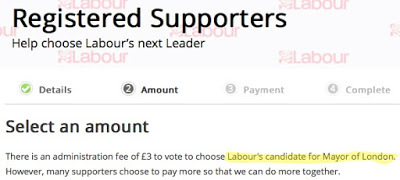
Of course, this could be really clever gamespersonship on the part of the Labour Party. If this happened they would swell their party funds with cash from Conservatives - if they had some way of knowing that Corbyn won't win the final vote, they too could be playing the system. But assuming that's not the case, Tories - who amongst you is a player?
P.S. I heard after I wrote this that the Daily Telegraph has apparently suggested something similar, but I was not aware of that at the time of writing.
Published on July 23, 2015 01:50
July 22, 2015
The plural of anecdote is not data
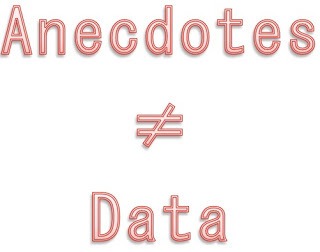 If scientists had mantras two would stand out:The plural of anecdote is not dataCorrelation is not causalityI'm sorry they're both negative - I'm sure it's not spiritually sound or something, but it does make them very valuable reminders of two key errors that crop up again and again in everyday life, and they are errors that even scientists can be prone to outside their field.
If scientists had mantras two would stand out:The plural of anecdote is not dataCorrelation is not causalityI'm sorry they're both negative - I'm sure it's not spiritually sound or something, but it does make them very valuable reminders of two key errors that crop up again and again in everyday life, and they are errors that even scientists can be prone to outside their field.I point this out because I've been semi-swamped on Facebook and Twitter by people, often scientists or with a science background, sending me stories about the way a particular doctor had worked at the weekend, so the government is entirely wrong. (For non-UK readers, there is a spat between the government, who want hospitals to operate the same at weekends as on weekdays, and the medical profession who say things don't need to change.) Spot the error from above?
I'll come back to the weekends business in a moment, but let me illustrate why this is a terrible way of countering an argument.
Let's say I was running a campaign to get rid of all out of work benefits. (Let's be clear: I don't want to do this, I'm pointing out the flaw in the doctors' campaign approach.) I could make an impassioned video saying that I have never claimed out of work benefits, so they clearly aren't needed. That's ludicrous, right? And equally it's ludicrous to use a video of someone saying 'I'm working at the weekend' to counter the suggestion that hospitals should operate the same way at weekends as they do on weekdays.
No one is suggesting that hospitals don't operate at weekend - but I don't think anyone would disagree that at the moment the weekend operation is pared down. And there are statistical implications from that.
The government has gone about this in an unnecessarily aggressive and stupid way, granted. But the medical profession don't make things better by using an argument with no scientific validity in response.
Published on July 22, 2015 02:04
July 21, 2015
Research showed...
 One of the themes I return to with regularity in
Science for Life
is the way that the media rarely distinguishes between quality of scientific sources. There is a huge difference between a Cochrane survey of all available research, or a large scale properly controlled trial and the type of 'study' where you choose 12 people who only ever buy Volkswagen Golfs and ask them what's the best family car. Yet the media just churn it all out with equal weight, telling us that 'a study has found...' or 'research shows...' They may give us a hint of a source, but that rarely gives enough information to be sure of the quality.
One of the themes I return to with regularity in
Science for Life
is the way that the media rarely distinguishes between quality of scientific sources. There is a huge difference between a Cochrane survey of all available research, or a large scale properly controlled trial and the type of 'study' where you choose 12 people who only ever buy Volkswagen Golfs and ask them what's the best family car. Yet the media just churn it all out with equal weight, telling us that 'a study has found...' or 'research shows...' They may give us a hint of a source, but that rarely gives enough information to be sure of the quality.As a demonstration of this I did a bit of a butterfly on a wheel analysis of a story in today's papers. It tells us what the top ten things are that parents do to embarrass their children - things like dancing and trying to use yoof-speak. And according to my favourite newspaper, this is the result of 'research'.
So let's dig a little deeper. What's the source? According to the paper it is that highly respected research establishment Thorpe Park, the theme park in Surrey. Now in principle it is possible to obtain reasonable quality data at Thorpe Park if the the park undertook the survey properly, although immediately we have a problem because the group of people who attend Thorpe Park are self-selecting and may well not be typical of the population at large.
So how did Thorpe Park undertake the 'research'? Well, they didn't. It wasn't done at Thorpe Park at all - it was a poll taken for Thorpe Park by an online polling company. In a way this is a better situation, because online polling companies can address a wider section of the population, though of course they can only ever interact with people who have access to the internet - a much larger, but still self-selecting group. However, being professionals, pollsters can use statistics to at least try to correct for this.
That assumes, of course, that this was the right kind of poll. There are some online polling companies like YouGov that are pretty hot on getting their sample right and other good things, though even they have their limitations. But there are others who are essentially marketing organizations who are less worried about sampling and data quality and more interested in delivering useful messages for companies to use in their PR. Let's be clear - I am not saying these marketing-oriented pollsters make things up. They definitely don't. They pay out good money to people to take part in their polls. But in the end the aim of their polls is to gain publicity.
Not entirely surprisingly this poll was undertaken by a marketing-oriented pollster. According to its website "Our research enables brands to create unique data-led content – content that can be published and shared across multiple channels with a view to grabbing attention in a busy media landscape." What we don't know is what data the pollsters provided, because someone somewhere is certainly misinterpreting it. The newspaper says that the list of ways it gives for parents to embarrass their children is the 'top ten things' that parents do. This could only be discovered if respondents were given a simple text box and asked to type in the embarrassing things with no prompting. Actually what the poll did was to already decide what the top ten things were and got their respondents to mark those they considered the worst.
So was this 'research' in the scientific sense? Of course not. And I don't want to make a mountain out of a molehill. It was just a fun story, put together so Thorpe Park had a reason for getting a press release into the news. But I really think that newspapers should use better language. Don't call something like this 'research' or a 'study'. Call it a fun poll or a straw poll or similar language that makes it clear that this is not real in any sense scientific. Otherwise, when they carry a story about 'research' on climate change or particle physics we might be inclined to be equally dismissive.
Published on July 21, 2015 01:05



